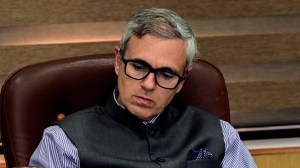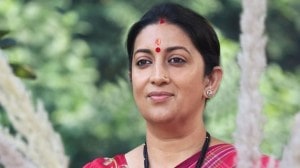Tide is turning, decisive gains in Kargil, says Army chief Malik
NEW DELHI, JULY 9: General V P Malik, Chief of the Army Staff, who returned this evening after a two-day visit to the Kargil battlefront ...

NEW DELHI, JULY 9: General V P Malik, Chief of the Army Staff, who returned this evening after a two-day visit to the Kargil battlefront along with Air Chief Marshal A Y Tipnis, says the gains made by the troops in the past few days have been decisive. He indicated to me, in an interview this evening, shortly after his return, that the end-game, as far as this infiltration is concerned, could be near.
“Their (Pakistan’s) defences in the Batalik area are crumbling. Their casualties are very high and we see bodies lying all over,” he said. The gains made by troops in both Batalik and Drass, he says, are considerable and “we are now increasing pressure on them in the remaining regions.” This, he indicated, particularly included the Mushkoh Valley.
While official spokesmen have announced major successes on the battlefront, this is the first time the Army has asserted at the topmost levels that the tide in the battle is turning decisively. The remarks are signficant as they coincide with Nawaz Sharif’s return and the debate in Pakistan over Kargil entering a crucial phase.
With the military gains consolidating rapidly, even at South Block this could hopefully set the stage for the next phase in this ongoing process of managing the Kargil conflict.
Malik said his troops have beaten back desperate counterattacks, particularly west of Tiger Hill and underlined that now regular Pakistani troops have been surfacing in the battlefield more brazenly.
Malik said it is not as if the advance of his troops has been so swift because the opposition was poor, or gave in easily. “They fought hard and put up resistance. But in the end it was the grit and determination of the Indian soldier that mattered.”
Malik said the turning point came with the recovery of Tololing and Point 5140 (mid-June). Asked if he was surprised by how soon the gains came, he said, “No, it hasn’t surprised me at all. I knew when the tide would turn, and the tide has started turning now.”
He said his latest visit–he has been to Kargil almost once every week since Indian riposte began in earnest–was substantively and qualitatively different. “Now results are coming fast, the mood is upbeat and the morale high in spite of the casualties.”
He also said the fighting units have been very focused now. Initially, as always happens, there may have been some disorientation. But recent successes have made a fundamental shift for the better. “In fact, the momentum is only increasing now,” he said.
Malik said casualties at this level are only to be accepted in terrain and warfare of this kind, particularly when you are launching assaults to recover high ground. He said he is not at all surprised by high casualties among young officers. “I have always had tremendous faith in my young officers. They have always led from the front and that is a tradition unique to the Indian Army,” he said.
He said this time around the Army has been helped a great deal by a great nationalist upsurge all over the country. And the media has made a big difference, he says. “The media has helped. It has made a substantive difference and is one of the reasons that we have an upsurge we did not even see in 1971 or 1965.”
Malik also paid a rich tribute to the IAF. Underlining the unique nature of operations in such high altitude he said the spirit of fighting together has grown. The IAF, he said, has played a tremendous role but declined to comment on operational lessons learnt. “It is too early to talk about that as operations are still going on,” he said.
Malik refused to comment at this point on how the Pakistanis have fought. “All I shall say is that I feel sorry for the people who have been abandoned like this,” he said.







- 01
- 02
- 03
- 04
- 05
























